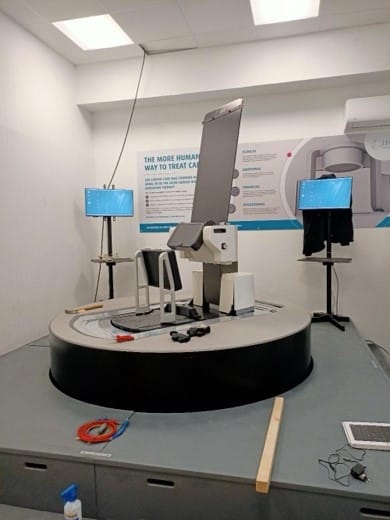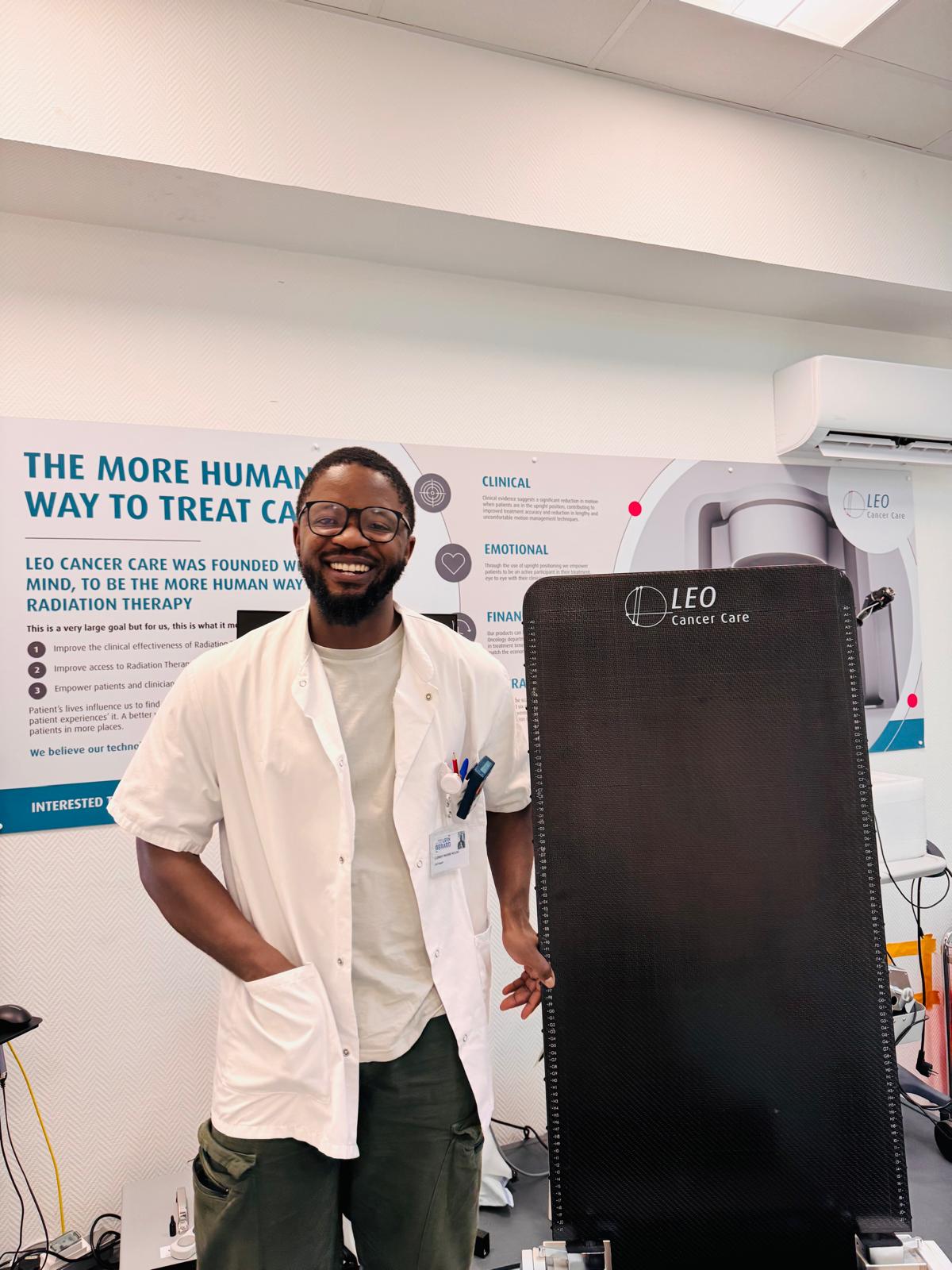I am Nkuebe Clement Moleko from Lesotho. I am currently working on UPLIFT Project #6: Clinical Upright Radiotherapy Workflow at a Photon Centre at the Centre de Lutte Contre le Cancer Léon Bérard, under the supervision of Prof. Vincent Grégoire, and I am registered with Université Claude Bernard Lyon 1.
My academic background spans physics, mathematics, and medical physics. I hold a double major in Mathematics and Physics from the National University of Lesotho, a Physics Honours degree from the University of the Witwatersrand and completed a two-year professional training programme in Medical Physics at the International Centre for Theoretical Physics (ICTP). I later obtained an MSc in Healthcare Technologies (Medical Imaging) from King’s College London.
My research focuses on translating the concept of upright radiotherapy into clinical practice. Using the Eve Marie® upright system from Leo Cancer Care, I will optimise patient positioning, evaluate setup accuracy and motion using a surface-guiding system, and assess patient comfort and satisfaction compared with conventional supine treatments.
I will acquire both upright and supine CT scans, design treatment plans in RayStation®, and compare dosimetric outcomes and inter- and intra-fraction motion, focusing on breast, lung, and prostate cancers. This work will culminate in the development of a standardised upright CT acquisition protocol.
Growing up in a country without a dedicated cancer hospital exposed me early to inequities in cancer care and shaped my commitment to studying radiotherapy. Personal experiences with cancer have further strengthened my resolve to develop patient-centred, clinically robust, and resource-efficient radiotherapy solutions. My project directly reflects this mission by enabling equitable, comfortable, and scalable treatment approaches.
Through UPLIFT, I look forward to collaborating with clinicians, engineers, industry partners, and fellow researchers while gaining cutting-edge skills to address one of the biggest healthcare challenges of our time: cancer. Outside work, I enjoy going to the gym, learning French, travelling and exploring new cultures.
Nkuebe Clement Moleko | LinkedIn

